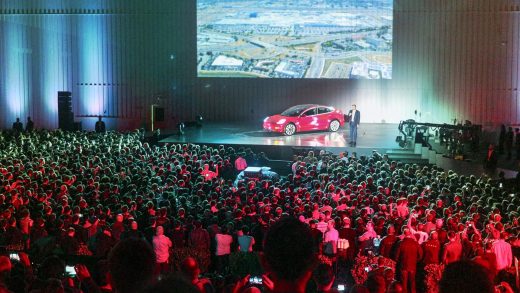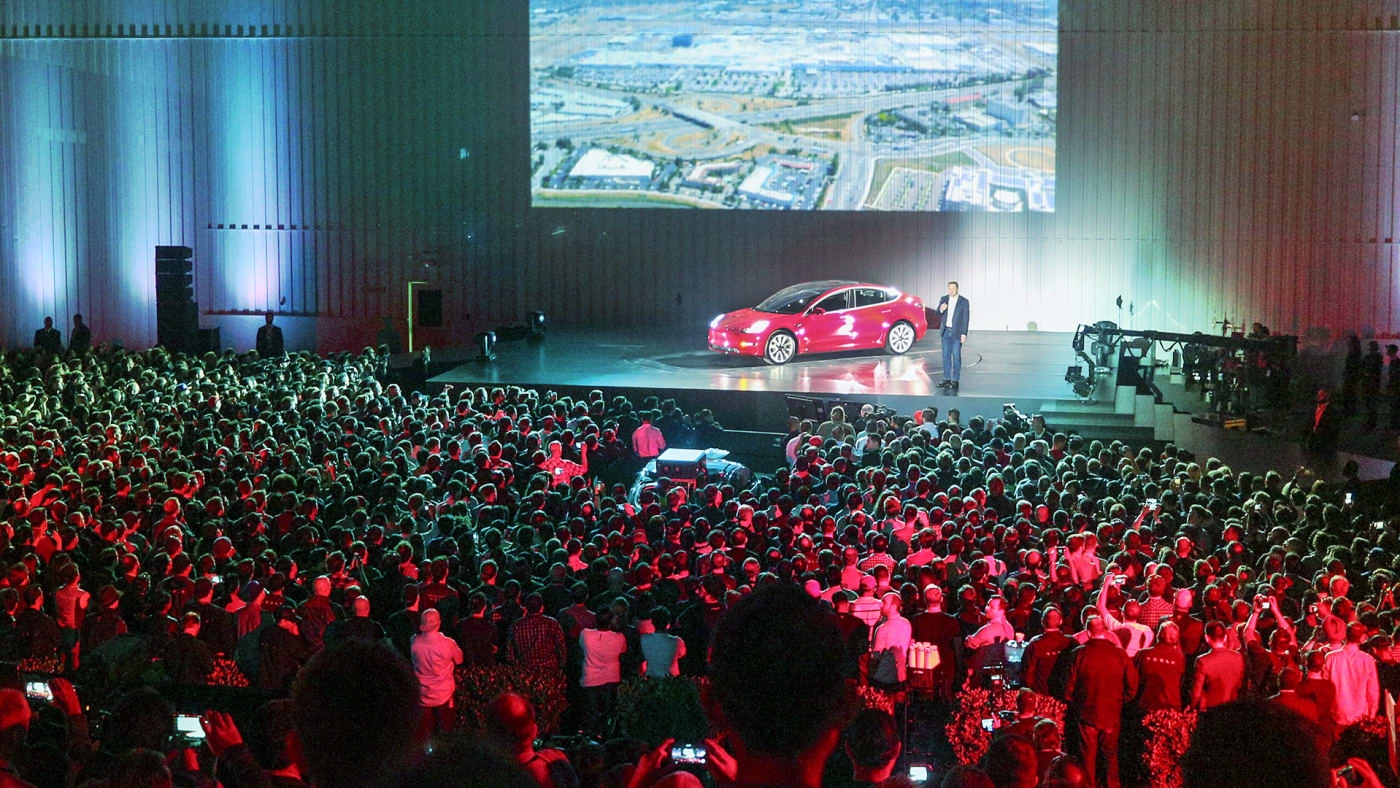Elon Musk drama or no, Tesla still has investors on its side
In its second-quarter earnings today, Tesla announced losses of $3.06 on $4 billion in revenue. Analysts expected a loss of $2.92 per share on revenue of $3.92 billion. And yet Tesla’s stock is up 5% in after-hours trades. Here’s why:
Of course, Tesla still has plenty of people rooting for its downfall, and the company has had no shortage of drama. In the last year, Tesla has come under scrutiny for its factory conditions, car production, treatment of employees, odd cost cutting measures, and CEO Elon Musk’s fitful interactions with critics. Musk’s bizarre behavior—calling investors names and sending outlandish tweets—has investors calling for him to restrain himself. SolarCity, meanwhile, is being sued by former employees, according to Ars Technica. In addition to all these issues, the company is finally facing competition from the auto industry.
Traditionally, Musk has been good at keeping investor appetite for Tesla stock whet by pulling through with meager successes. Last quarter, the company kept stockholders happy by mitigating losses and promising profitability in the third and fourth quarters. This quarter, Tesla hit its 5,000-car-per-week production goal “multiple times” in July—meaning it’s not hitting this rate consistently. Still, the company promises to produce 6,000 cars per week this month and expects to product 50,000-55,000 Model 3s in Q3. Tesla says it’s on track to produce 100,000 Model S and X cars this year.
During the earnings call, Musk said that if the company maintains its production rate of 7,000 cars per week of Models 3, S, and X, it can be profitable. “Our goal is to be cash flow positive for every quarter going forward,” he said.
But the company has a track record of missing its goals, and there remain big questions around Tesla’s ability to scale production and compete with electric cars from other car manufacturers. Musk has been pushing his employees to produce cars at a feverish rate that threatens to burn out the whole operation. The company is also planning a new factory in China that will require significant funding, which the company says it will raise through local debt. But analysts suggest that Tesla might run out of cash if it doesn’t do a bigger capital raise. These are not issues that can be solved with flame-throwers, surfboards, and hats.
Furthermore, the Model 3 is behind schedule, and investors are concerned consumer infatuation won’t hold. As of April, some 23% of reservation deposits for the Model 3 were refunded, according to Second Measure.
In its earnings statement, Tesla noted that customer deposits were down from Q1 to $942 million. Customers have not only had to endure long wait times for the car, but a higher than anticipated ticket price. The Model 3 was originally hailed as affordable at $35,000, but Tesla is only selling higher-end versions of the car at the moment. Meanwhile, the Nissan Leaf and Chevrolet Bolt are ramping up both production and sales. That said, Tesla is making headway too. In Q2, the company delivered 18,449 Model 3 vehicles, up from 8,182 last quarter.
Tesla has done an excellent job of keeping investors on their toes. Now the big question is, What will happen if the company doesn’t reach profitability next quarter?
(29)



